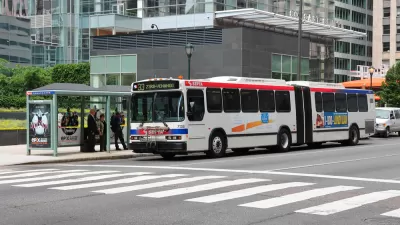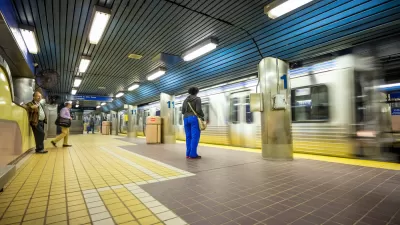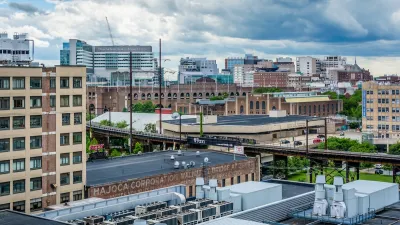A growing number of cities around the world, and around the United States, have banned horse-drawn carriages out of concern for the health and welfare of the horses.

Jake Blumgart reports on an idea that could change the way tourists and romantics get around cities in the United States.
Janet White, an animal rights activist and leader of the group Carriage Horse Freedom, "has an idea she thinks could help the tourism industry shift away from horse-powered buggy rides, a popular draw in the visitor-packed streets of Philadelphia’s oldest neighborhoods."
"White envisions elaborate carriages, looking as though they just appeared from the set of Beauty and the Beast, but powered purely by electricity," explains Blumgart.
By using batteries to power carriages, instead of horses, White hopes to get the best of both worlds: the appeal of a old-time romantic carriage ride, but without any animal suffering.
White is spreading the idea around the halls of power in Philadelphia, but cities around the world have already banned horse-drawn carriages altogether, including Montreal, Salt Lake City, Rome, Barcelona, and Guadalajara. New York City almost banned horse-drawn carriages during the de Blasio administration, but stopped short.
FULL STORY: Hold your horses: Can old-timey ‘e-carriages’ replace Old City buggies?

Planetizen Federal Action Tracker
A weekly monitor of how Trump’s orders and actions are impacting planners and planning in America.

Trump Administration Could Effectively End Housing Voucher Program
Federal officials are eyeing major cuts to the Section 8 program that helps millions of low-income households pay rent.

The 120 Year Old Tiny Home Villages That Sheltered San Francisco’s Earthquake Refugees
More than a century ago, San Francisco mobilized to house thousands of residents displaced by the 1906 earthquake. Could their strategy offer a model for the present?

Philadelphia Councilmember Proposes Transit Access Fund
The plan would allocate 0.5 percent of the general fund toward mobility subsidies for low-income households.

Texas Bill Would Ban Road Diets, Congestion Pricing
A Texas state senator wants to prevent any discussion of congestion pricing and could suspend existing bike lane and sidewalk projects.

USDOT Threatens to Pull New York Highway Funding
The Trump administration wants the state to kill New York City’s congestion pricing program despite its demonstrated success.
Urban Design for Planners 1: Software Tools
This six-course series explores essential urban design concepts using open source software and equips planners with the tools they need to participate fully in the urban design process.
Planning for Universal Design
Learn the tools for implementing Universal Design in planning regulations.
Ada County Highway District
Clanton & Associates, Inc.
Jessamine County Fiscal Court
Institute for Housing and Urban Development Studies (IHS)
City of Grandview
Harvard GSD Executive Education
Toledo-Lucas County Plan Commissions
Salt Lake City
NYU Wagner Graduate School of Public Service





























